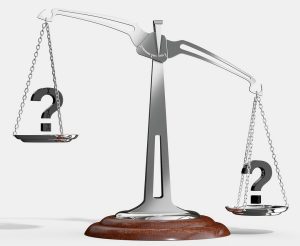29 January 2024: Valuing a Business – The Comparables Method
Last week’s post describing four methodologies often used when valuing a business raised some questions. Surprisingly, the questions raised were pretty equally spread over the four methods we discussed.
This wasn’t really surprising as we get questions all the time on how we approach business valuations and the four methods mentioned in last week’s post are not the only methods used by us or others for this all-important aspect of selling a business. We’re planning a post with a high-level discussion, similar to last week’s, of several other methods that we use and, in some cases, why we employ them.
__________________________________________________________________________________
Our February Live Stream in The Brokers Roundtable℠ will feature an interview and Q&A with Scott Doering, a founding Member of The Brokers Roundtable℠ and recipient of the Worldwide Business Brokers “Course Certified” badge, discussing his first-hand experience dealing with a private equity firm as a potential buyer for a business he’s been engaged to sell. Exact date will be posted to Announcements and Community Events.
If you’re not yet a Member of The Brokers Roundtable℠, you can find out about such future events and what other benefits Members enjoy here.
___________________________________________________________________________________
In the meantime, as part of this topic we’ll do a deeper dive into several of the less esoteric valuation methods we use and this is the first of those deep dives.
The Comparables Method
Last week’s post contained the following language to open the discussion of the Comparables Method of valuation:
“Whatever business is the subject of the valuation discussion, it is highly unlikely that it is the only business of its kind in existence.
There have been dozens of small manufacturers and plumbing companies sold in the past five years. The same can be said for eCommerce, logistics, distribution, real estate, convenience stores, auto repair, IT businesses, tire, shoe and apparel retailers, and any other business you can think of.”
__________________________________________________________________________________
Courses! Courses! Courses!
Many of you have asked if our Flagship Course, “Learn How to Value and SUCCESSFULLY Sell Businesses“, could be made available on a module-by-module basis. Instead of enrolling in the complete course, could you enroll only in the module(s) you wanted? We’re happy to report that this is now possible.
We’ve broken our Flagship into six separate modules (or module groups) to give you all the flexibility you need to learn only what you want to learn – and we’ve moved them all over to the new Brokers Academy in The Brokers Roundtable℠ . The Flagship is still available but the modules are now available individually.
You don’t need to be a Member of The Brokers Roundtable℠ to access any of these courses but if you are, you’ll receive a 20% discount on any course you enroll in. If you’re not yet a member of The Brokers Roundtable℠, you can learn more – and get access to all the talent and resources – here.
___________________________________________________________________________________
It would be hard to argue otherwise. But it’s important to understand what “comparable” means.
 For us it’s defined as a business in the same industrial classification as the business we’re charged with valuing; it is of similar size – judged by revenue or earnings; located in the general region of the business being valued; and has been sold within some reasonably recent period of time.
For us it’s defined as a business in the same industrial classification as the business we’re charged with valuing; it is of similar size – judged by revenue or earnings; located in the general region of the business being valued; and has been sold within some reasonably recent period of time.
By way of an example, consider the valuation of a regional auto parts wholesaler with revenue of $4.5 million, discretionary earnings of $700,000 and located in Indiana, U.S.A. If, when doing a valuation for the owners of this business, we find four similar businesses within a certain radius distance that sold within the last three years and their sales prices represented a percentage range of .4 to .6 of revenue, it would suggest to us that, based on revenue of the business we’re valuing, it might be worth somewhere between $1.8 million and $2.7 million. Likewise, if we see that sales prices of the sold businesses represented between 2.75 and 3.25 times their earnings, it would suggest to us that the business we’re valuing might be worth some number between $1.925 million and $2.275 million.
_____________________________________________________________________________________
Our course, “Learn How to Value and SUCCESSFULLY Sell Businesses“, teaches you how to accurately value and successfully sell businesses.
Our first step is to determine the business’ industrial classification and search the appropriate databases for businesses in that classification that have sold. With the results, we can refine our search by looking for those businesses that had revenue and earnings that fell within a certain range of the business we’re valuing. What we’re trying to find is the sales prices of such businesses and how each business’ selling price related, stated as a percentage, to the business’ revenue and earnings.
No Matches
 But what if our search fails to turn up a similar business? In that case, we first widen the geographic parameters and then the industrial classification parameters. Financial buyers may not necessarily be looking for an auto parts wholesaler. If the broker or seller has determined that the likely buyer is financial, we know that such buyers are, as a general rule, looking for a profitable business; essentially the answer to the question, “How much will this business put in my pocket?” As such, we’d widen our search to include wholesalers of marine, aeronautical and industrial parts and similar business types.
But what if our search fails to turn up a similar business? In that case, we first widen the geographic parameters and then the industrial classification parameters. Financial buyers may not necessarily be looking for an auto parts wholesaler. If the broker or seller has determined that the likely buyer is financial, we know that such buyers are, as a general rule, looking for a profitable business; essentially the answer to the question, “How much will this business put in my pocket?” As such, we’d widen our search to include wholesalers of marine, aeronautical and industrial parts and similar business types.
This means that, unless the financial buyer has experience in or certifications required by a specific industry channel – auto repair, for example – they might consider any of those businesses and the sales results of each would, in this case, impact our judgement when it came to calculating the approximate market value of the business we’re valuing.
The methods discussed last week are not the only methods used by us or others and the comparables method is just one of at least five we use on any given valuation assignment. It’s also important to state that, though helpful in guiding us and confirming our numbers, the comparables method is not the most import one.
The Bottom Line
When we value a business, our objective is to first see what others have paid for similar businesses with similar characteristics.
But how do we find that information?
Most of you worthies will be familiar with the concept of a multiple listing service (MLS). Anyone who has bought or sold a house using a real estate agent knows that by using the real estate industry’s various MLS platforms – their regional MLS, Realtor.com, Zillow, Trulia, etc.; multiple listing services all – agents can search for a list of houses with certain characteristics (size, neighborhood, number of bedrooms, etc.), determine what they sold for and provide an estimate of value for houses with those same characteristics. Such databases exist in our industry, as well.
Subscribing to those databases is a cost of doing business as a business broker. But armed with the information such databases give us is one of the reasons that not once since starting Worldwide Business Brokers 24 years ago has anyone disputed our valuations.
I’d like to hear from you. What topics would you like me to cover? How can we tailor these posts to be more useful to you and your business. Let me know in the comments box, below, or email me at jo*@*******************og.com.
If you have any questions or comments on this topic – or any topic related to business – I’d like to hear from you. Put them in the comments box below. Start the conversation and I’ll get back to you with answers or my own comments. If I get enough on one topic, I’ll address them in a future post or podcast.
I’ll be back with you again next Monday. In the meantime, I hope you have a safe and profitable week.
Joe
Searching For…
NOTE TO READERS: Our “Searching For…” feature has been moved to our online community, The Brokers Roundtable℠. It will appear there exclusively from now on.

#business #businessacquisition #sellabusiness #becomeabusinessbroker #businessbrokering #businessvaluation #MergersandAcquisitions #buyabusiness #sellabusiness #realtor #realestateagents
The author is the founder, in 2001, of Worldwide Business Brokers and holds a certification from the International Business Brokers Association (IBBA) as a Certified Business Intermediary (CBI) of which there are fewer than 600 in the world. He can be reached at jo*@*******************og.com

